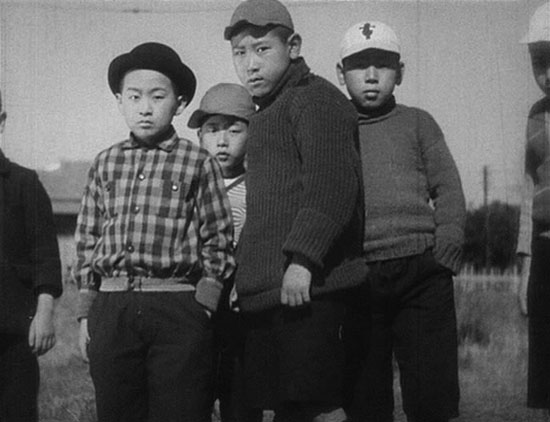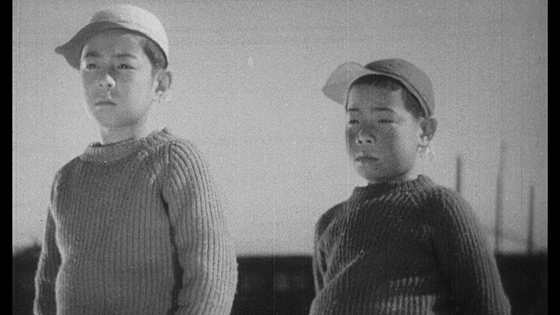“Can your dads take out their teeth like my dad?”
Jostlings for superiority, shufflings for power, and contests
of strength – flurries of action that
settle into hierarchies – these games are played out in the neighborhood spaces
where boys vie for sparrows’ eggs and in the workspace where men vie for the
biggest laugh from the boss. Who eventually becomes general, who becomes
lieutenant general, and who becomes the one slain by an invisible bullet firing
forth from the finger of another is as arbitrary and ridiculous as it is terribly
serious.
The revelation that a father’s position relies on such
arbitrary and demeaning ridiculousness disrupts two boys’ own sense of position
and self. Indignant and grand, the boys – one virtuously, one reluctantly – lodge
their protest, refuse their rice. Grandness can be maintained only so long though,
and virtue yields to the pains of the stomach. In such acquiescence comes further
revelation, or rather, more poignantly, self- recognition: the boys know that
they and their father, in the end, walk in the same world, play the same games.
Is this tragedy? Is it comedy? It depends, perhaps, on one’s
point of view. Here, at any rate, Ozu’s
light touch makes room for nuance, for both comedy and tragedy - and also,
maybe more importantly, for tenderness. In the midst of the jostlings, the
games, the indignation, and sad realizations, there is the comfort of a
steaming kettle, of a parent’s affectionate gaze on a child’s sleeping face, of
a plate of rice offered in peace, and of a look of understanding passed between
father and son.




No comments:
Post a Comment